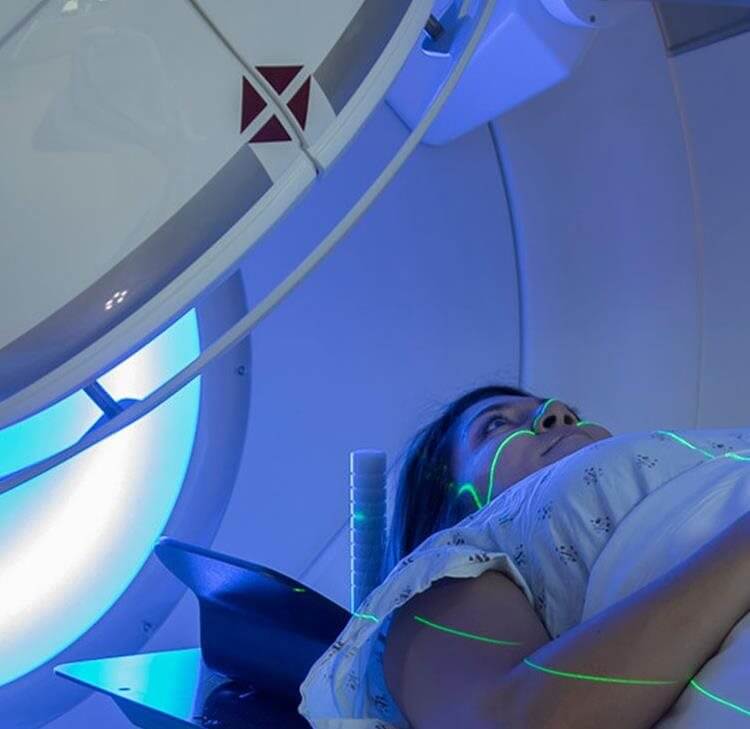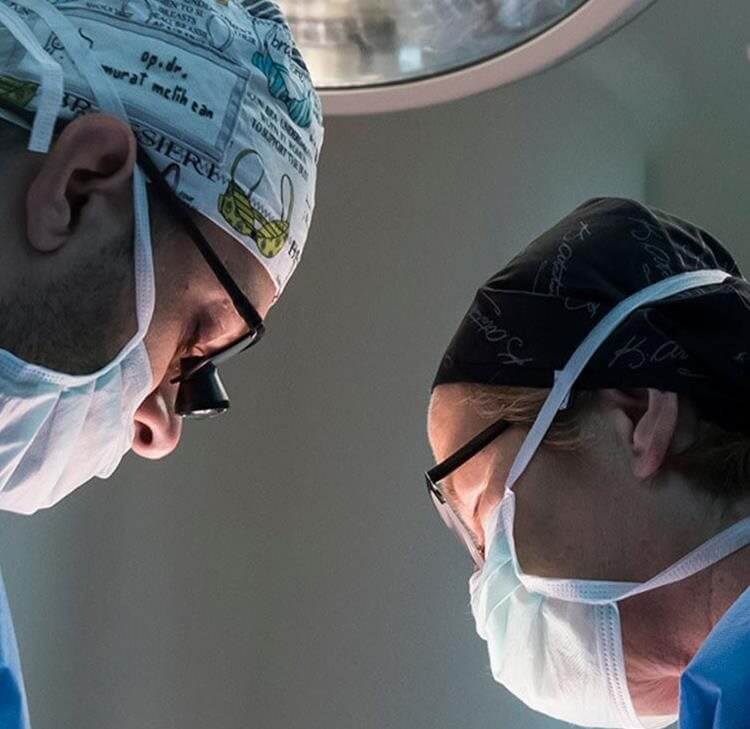In conversation with… Christian Dingwall: Manchester Nightingale
We are fortunate to work with an array of fantastic clients all dedicated to serving the health and care sector. We talk to Christian Dingwall, who led the team advising Manchester University NHS Foundation Trust on its work to establish and commission the Manchester Nightingale Hospital.
Here at Browne Jacobson we are fortunate to work with an array of fantastic clients all dedicated to serving the health and care sector. In our new ‘In conversation with …’ series we spend half an hour with one of our lawyers getting a glimpse of the behind the scenes legal work we undertake to support our clients to achieve their aims and ambitions and deliver what are, at times, ground breaking and challenging projects.
In the first of the series we talk to Christian Dingwall, Partner in our Commercial Health team, who led the team advising Manchester University NHS Foundation Trust on its work to establish and commission the Manchester Nightingale Hospital.
Q: Christian, can you outline for us what the Manchester Nightingale Project entailed and the size of the challenge facing our client?
CD: The project involved setting up an emergency hospital in Manchester to act as a step down facility for Covid-19 patients, because it was feared that existing hospital capacity would be insufficient.
There were two key challenges for MFT to overcome, first to deliver an operational field hospital within 10 days, and secondly to pull this off in a building not designed to be a hospital - a Grade II listed ex-railway terminus converted to conference centre! These were significant legal risks and it was imperative that the legal documents provided sufficient protection for our client.
Whilst the London Nightingale Hospital had already been set up at this point, the nature of the challenges faced in establishing the Manchester Nightingale as a step down facility rather than an acute hospital to treat Covid-19 patients were such that a different approach was needed to the underlying legal arrangements.
Q: What role did we play in supporting the client to achieve its objectives?
CD: We put together a team of experts covering a range of legal disciplines including: corporate governance, commercial contracting, health and safety/regulatory, environmental, property, medical law & ethics, HR, and procurement to ensure that the client had access to and advice on all the key areas which needed to be considered. Every single one of these areas needed considering to ensure the arrangements were fit for purpose from our client’s perspective.
We approached the project with a view to supporting the two parties to achieve the shared NHS objectives whilst ensuring that the risk our client was taking on in stepping up to take on this responsibility was appropriately mitigated and/or accounted for.
Q: Were there any other challenges you faced?
CD: As I said before there was a common desire across the two parties, NHS England and our client to make this project work which was a great platform to work from in securing the deal. However, there were inevitably some challenging issues given the size and complexity of the project, for example the challenges the NHS faced in using a Grade II listed building, challenges which were not necessarily materialising on the other Nightingale Projects.
Q: How did it feel to be part of this project?
CD: It was a great project to work on. This was a critically important project, something the team never lost sight of and, of course, it was being done with a view to saving and protecting lives.
Another one of the challenges associated with this project was that the client workforce was itself being exposed to significant risks both in terms of risk to their health and professional risk if anything went wrong. It is fair to say we felt a responsibility to the workforce to ensure the job we did gave them as much protection as possible. It was one of those projects where you could see that whilst we were delivering a back office support to the NHS, it was one which was essential to support and protect the front line workers.
It definitely felt like we were working on a project of national importance.
Q: Are there any particular highlights or stand out moments from this project?
CD: The highlight has to be the team work on a number of different levels.
The stand out highlight for me was the unsolicited feedback we received from the client we received – being told that we had done a really good job. I am really proud of the way our team and MFT’s team worked incredibly well together, as one to get the job over the line. It was really nice to see that reflected in the client’s feedback.
I also have nothing but praise for the back office support from our IT team. It was also the first time I have led a project of this complexity with a multi-disciplinary team all working remotely. Remembering that this was at the start of the lockdown, when the complete home working approach was still relatively new, the resilience of our systems to support this project was really impressive and definitely made this an easier process than it might otherwise have been. We never felt there was problem with technology getting in the way, they gave us the platform and all the tools we needed.
I think the final aspect of this was the relationship between the parties and the desire to work collaboratively to get this project.
Q: Where does this project rank on your list of career highlights?
CD: It is a really good highlight. This job happened at about the time the lockdown was introduced and a lot of the government rhetoric at the time was about the country being on a war footing with the coronavirus. So in our own way, it felt like we were able to play a perhaps small but nonetheless important role in helping the NHS ready itself for the impending rise in Covid-19 cases.
It is definitely up near the top, if only for that sense of supporting vitally important NHS work.
Q: Do you have any top tips for other clients embarking on projects of this nature?
CD: I always think it is incredibly important for the client and their professional advisers to get on well together as a team. When the client is going to be under huge pressure in delivering a project, they need to have advisers they can rely on to be there for them and support them in the way they want to work.
That aside, key to delivering a project of this nature is to have a plan – a good, robust but flexible plan which covers every aspect of the project and identifies the key areas of legal risks so there is a platform to work from in drawing up a robust arrangement from which you can deliver the NHS shared objectives.
Related expertise
You may be interested in...
Opinion - Maternity services
University Hospital Leicester hold their inaugural Maternity Safety Conference
In Person Event
Navigating your way through high profile sensitive reviews and investigations
Opinion
Junior doctors vote unanimously in favour of strike action
Opinion
Can toilet facilities amount to sex discrimination?
Published Article
Digital Twin Technologies: key legal contractual considerations
Opinion
Consultation launched on minimum ambulance service levels during strike action
Opinion - Maternity services
Changes to redundancy protections for employees post-maternity leave
Legal Update - Shared Insights
Shared Insights: Coroners’ Question Time
Press Release - Careers
Browne Jacobson health lawyer wins major accolade at Made in Manchester Awards
Opinion
BMA issues medical locum rate card for junior doctors
Legal Update
Employee who refused to wear a face mask fairly dismissed
Opinion
New toolkit to support safer recruitment in the care sector
Legal Update
Green Leases for the NHS
Guide
Government response to the consultation on the Higher-Risk Buildings Regulations
Published Article
The first 100 days for Integrated Care Boards
Opinion
Menopause and the workplace
On-Demand
Future of Care - Retirement Living webinar
In Person Event
Independent Healthcare In-House Lawyers Forum
Opinion
Government introduces new “anti-striking laws” to be discussed in Parliament
Press Release - Maternity services
Father Christmas comes to University Hospital Coventry and Warwickshire care of Browne Jacobson’s Birmingham Office Community Action Group
Opinion - Maternity services
The Patient Safety Incident Response Framework (PSIRF) and its impact on maternity services
Legal Update - Shared Insights
Shared Insights: Looking ahead to 2023 – what Health and Care employers need to know
Opinion
Coroner’s refusal to issue a Prevention of Future Deaths Report following death in prison custody inquest was lawful
Article
Mental health, eating disorders and placement of young people
Legal Update
LPS consultation and ‘go live’ planning
Opinion
Consultation launched on plans to amend NHS pension rules to bolster NHS workforce
Legal Update
Getting ready to face Industrial Action
Legal Update - Shared Insights
Shared Insights: Prolonged disorders of consciousness
Published Article
How AI and technology can transform the healthcare sector
On-Demand
The UK's green agenda - the outcomes of COP27 and actions since COP26
On-Demand
Insights from the Chief Coroner by His Honour Judge Thomas Teague, KC
Opinion
BMA advises consultants not to accept less than the BMA minimum rate card for extra-contractual work
The BMA is advising all NHS / HSCNI consultants to ensure extra-contractual work is paid at the BMA minimum recommended rate and to decline offers of extra-contractual work that doesn't value them appropriately.
On-Demand
Leadership and lessons learnt during the Pandemic by Professor Jonathan Van-Tam
Legal Update - Shared Insights
Shared Insights: The Patient Safety Incident Response Framework
Opinion
Directors fined for unsafe removal of asbestos
Two directors of a construction company were fined after failing to ensure the safe removal of asbestos from a plot of land. On 14 and 15 November 2021, Directors Anthony Sumner and Neil Brown, of Waterbarn Limited were involved in the uncontrolled removal of asbestos material from a plot of land in Grasscroft, Oldham.
Opinion
Don't look down
An engineering company in Tyne and Wear was fined £20,000 after a worker fractured his pelvis and suffered internal injuries after falling through a petrol station forecourt canopy, whilst he was replacing the guttering.
Guide - Maternity services
Mediation guide for Clinicians: What do you need to know and how do you need to prepare
Opinion
NHS England – Updated Transaction Guidance
NHS England has published (October 2022) new guidance - Assuring and supporting complex change: Statutory transactions, including mergers and acquisitions.
Opinion
NHS England – Assuring and supporting complex change
NHS England has issued an updated (publication 11 October 2022) suite of Complex Change guidance about how it will assure and support proposals for complex change that are reportable to it. New and (where it is still in force) existing Complex Change guidance are as follows.
Legal Update
The Retained EU Law
Created at the end of the Brexit transition period, Retained EU Law is a category of domestic law that consists of EU-derived legislation retained in our domestic legal framework by the European Union (Withdrawal) Act 2018. This was never intended to be a permanent arrangement as parliament promised to deal with retained EU law through the Retained EU Law (Revocation and Reform) Bill (the “Bill”).
























